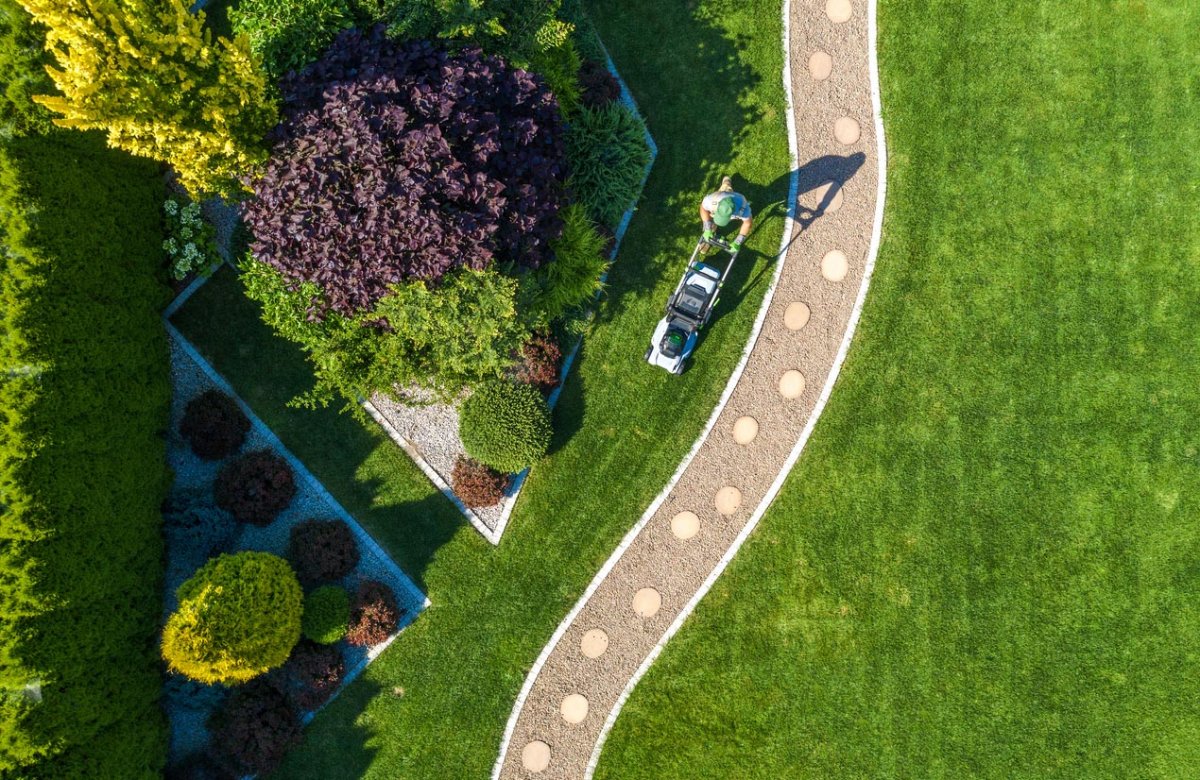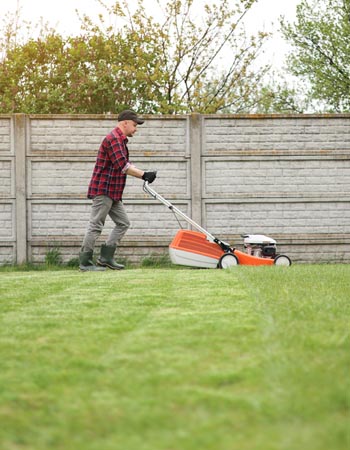

We may earn revenue from the products available on this page and participate in affiliate programs. Learn More ›

Want pro tips and advice straight from the source?
We’re tackling pest and wildlife control problems in June. Have a question? Let us know by filling out this form!
Welcome to Ask a Pro! Every month, we’ll take your questions about home improvement, DIY, lawn and garden, and homeownership and answer them with the help of professionals. Our experts are vetted and verified—and they’re eager to share their knowledge.
Last month, BobVila.com readers submitted lawn and garden questions on Facebook and Instagram, and via our newsletter. You asked how beginners can successfully start their gardening projects and which resources they should tap into, and three experts, Rosemarie Miner, Morgan Visalli, Deserae Lindsley, are offering their tips and resources that you can tap into.
Meet the Expert: Morgan Visalli, Certified Permaculture Designer; Grow With Mo on Instagram
Morgan Visalli of Grow With Mo is a sustainable garden designer and ecologist specializing in edible gardens, California native plants, and permaculture and regenerative design. As a Certified Permaculture Designer with over a decade of experience in organic gardening and land stewardship, she loves helping people grow food and compost, and to connect with nature in their own backyards.
Check out Morgan’s website and Instagram page.
Meet the Expert: Deserae Lindsley, Master Gardener; GardeningwithDezz on Instagram
Deserae Lindsley, or GardeningwithDezz, is a Master Gardener and gardening educator in Austin,Texas. Living on less than a quarter of an acre, she has a Certified Natural Wildlife habitat, vegetable garden, backyard chickens, and an extensive pollinator garden.
Check out Deserae’s website and Instagram page.
Meet the Expert: Rosemarie Miner, Founding Principal of Our Temenos
Rosemarie Miner founded and leads New York City’s only woman-owned ecological landscaping company, which serves residential, commercial and government clients. She works tirelessly to transform outdoor spaces into productive, functional green infrastructure that can stand up to climate change. Working in the field since 2012, Rosemarie has a history as a community organizer. She has served with AmeriCorps and MillionTreesNYC, and also as Brooklyn’s Organizing Fellow for 596 Acres. She holds a Bachelor of Science in ecology.
To see more of Rosemarie’s work, check out her website, LinkedIn, and Instagram pages.

- Want more lawn and garden advice? Sign up for our newsletters!
What are your top 3 pieces of advice for newbies to lawn care and gardening? — @le.french.fry on Instagram
Morgan’s Advice:
- Take time to observe your garden before you plant anything. There is a saying in garden design: “Don’t fight the site,” which means get to know your site, and then work with it rather than against it. It will save you so much money, trouble, and heartbreak if you take the time to really observe. Record how many hours of sunlight different parts of the garden get during different seasons. Notice low spots where water may pool, or high spots where soil may dry out faster. Dig a hole and check out the soil texture. Is it grainy and sandy, which means water will drain quickly through the soil? Or is it smooth and sticky, which means it has more clay and may hold water for longer? Look out for critters like gophers, squirrels, or deer who may like to munch your plants. Talk to your neighbors about what has worked or hasn’t worked in their gardens.
- Start slow and small. Rather than tackling your entire yard at once, start with a small garden project to start building your skills. Want to grow a huge, epic vegetable garden? Start with a small herb garden near your kitchen. Want to transform your yard into a flowering cottage garden full of color? Pick three flowering plants from the nursery and plant them in a small plot, care for them, and see how they do. Starting small will help you build confidence and skills while getting to know your climate and growing conditions. Gardening is all about experimentation and trial and error, so small projects also give you a chance to “fail” and learn lessons on a small scale before you invest in a bigger project.
- Go organic. When we’re harvesting a fresh tomato from our veggie garden, cutting a flower bouquet to bring into the kitchen, or watching our kids and pets roll around in the grass—don’t we want to know that the plants that we’re eating, growing, and touching aren’t covered in toxic chemicals that are bad for us and the earth? Start your gardening journey off on the right foot by taking an organic approach. You can find organic products like soil, fertilizer, and pest control at the garden or hardware store by looking for the OMRI (Organic Materials Review Institute) certification. Organic gardening reduces water pollution, enhances biodiversity, and reduces our exposure to chemicals.
- See more BobVila.com gardening advice for beginners.
Deserae’s Advice:
- Have fun! Don’t be too intimidated by all of the information out there that you forget to have fun! Making mistakes in gardening is how you learn. Each season will teach you something new.
- Start small! A thriving and healthy garden is easily managed by the gardener. Packing too many plants into a small space can lead to pest problems and make it difficult to manage your garden. A few select plants that you can observe and monitor in your first seasons is best. If you don’t have space for a raised bed or in-ground garden, you can always grow in containers. If growing food, grow what you and your family like to eat. I find even the smallest of gardens can produce more than you alone can eat.
- Join a local gardening group! Most communities have gardening groups on the internet or in person. These groups can help you better understand your local growing zone and the types of plants to grow. You may find that a problem your garden is experiencing is something other gardens in your area are experiencing as well. Gardeners love to band together to share knowledge, and the gardening community is generally welcoming.
Rosemarie’s Advice:
- Get dirty! Experiment with seed starting or volunteer for neighborhood cleanups or with local greening initiatives. I promise you’ll have fun, and it will keep you coming back for more!
- Trust your intuition. Gardening is a lifelong hobby, or a career for a lucky few, one which requires an immense amount of humility. There are more than 391,000 known species of plants worldwide. You will certainly only get to know a fraction of them. Make a point to get to know a few in your garden or region each year. As you build on that practical knowledge, remember that trial and error is par for the course. In the same way that human relationships can be different from person to person, relationships with plants mirror this. What works for me in my garden may not work in yours. Trust the process of getting to know the individual plants in your community and let them lead you.
- Release outcome! We so often try to turn our hobbies into a money-making venture or strive for recognition through achievements. Let gardening be a place where you release the need to outperform yourself or others. Let it be a place where you experiment without judgment and refuse to assign goals or benchmarks to the journey.
- We talked to pros about the most underrated edible plants. See what they have to say!

How can I best take advantage of resources from local organizations (colleges, town programs, state programs) etc.? — Andrew P. on Facebook
Morgan’s Advice: One of the best local gardening resources to check out is your closest Cooperative Extension department. Many universities have agriculture or horticulture extension services that will provide region-specific guidance and advice for gardeners. You can find your state’s main extension office through the National Institute of Food and Agriculture’s partner directory.
Another program to check out is your local Master Gardener program. Master Gardeners are local residents who receive special horticulture training and volunteer to support their community in their gardening efforts. You can find out more about your local Master Gardening program at the American Horticultural Society website.
Finally, Facebook groups are another great resource to check out—look for one that is regionally specific. Here in Southern California there are several groups focused on vegetable gardening, native plants, fruit trees, etc., and there is always a wealth of information shared within these community forums.
Deserae’s Advice: Every state, city, and county have local county extension programs that provide resources and information to their community. These organizations are state funded, and each county is localized to its specific growing zones. Your county extension office can provide you with information about common plants found in your area as well as specific pests. Many also offer free or low-cost classes to their communities and a helpline should you have a specific lawn or garden question. If you’re still unsure, you can also check with your local state colleges for more information.
Rosemarie’s Advice: Many local organizations and educational institutions offer free workshops, materials, and incentives for homeowners interested in becoming a part of the solution to climate change. If you have a lot of free time, I would suggest filling up your social calendar with any and every such event that catches your eye. It can also be helpful to spend a little time thinking about the contributions that you are able and willing to make. Are you able to convert your entire lawn into a native plant community? Are you skilled in education or outreach? Ready to transition to solar in your home or office? Orient yourself around the role you’d like to play and then tailor your search to opportunities that are in alignment.
Some queries have been edited for clarity.
